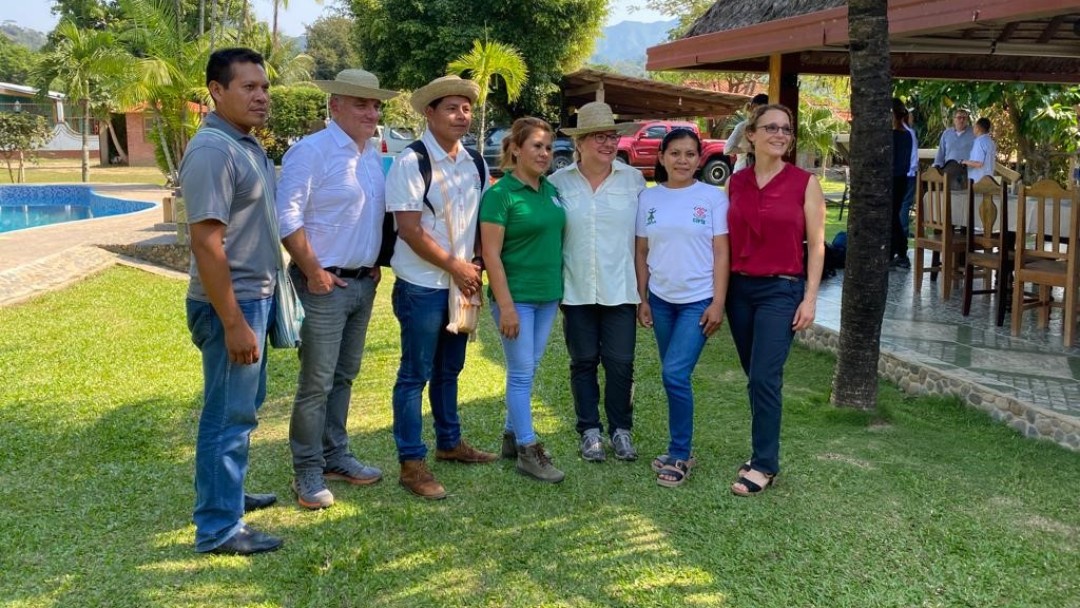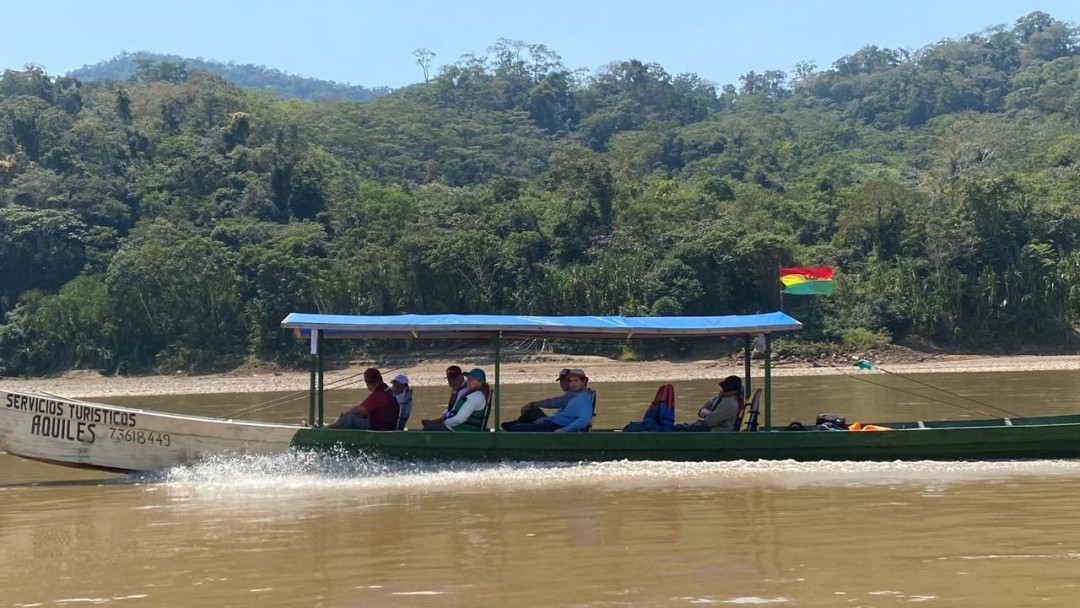News from 2022-08-29 / KfW Development Bank
Minister Schulze announces continuation of German-Bolivian cooperation in Bolivia

Federal Minister Svenja Schulze visited Bolivia from 23 - 25 August. The aim of the trip was to officially announce the continuation of bilateral cooperation and to explore new areas of cooperation. Among others, the Minister met with the Vice President, David Choquehuanca, and the Foreign Minister, Rogelio Mayta, who thanked the Minister for the continuation of the highly appreciated cooperation.
So far, development cooperation with Bolivia has focused on three priority areas: Water and Sanitation, Rural Development and Environment and Renewable Energies. In the future, the German Government would like to engage even more in Bolivia for green and equitable development ("Just Transition"). To this end, bilateral cooperation is to focus on the fight against climate change and the preservation of biological diversity.
Bolivia currently occupies the sad third place worldwide among countries with the highest loss of primary forest. Against this backdrop, the Minister announced an FC commitment of EUR 15 million for Amazon protection to the Bolivian partners and stated: "Half of the remaining rainforests on our planet are located in the Amazon region. Protecting them is a task for humankind, because without rainforest protection there can be no climate protection. It is our responsibility to support our partners in the countries bordering the Amazon. I am therefore pleased that we can expand our cooperation with Bolivia for the protection of the Amazon even further today."
The commitment is not only relevant for the conservation of the forest and biodiversity, but also for the prevention of new zoonoses and in the fight against climate change.
To get a better picture of the situation and challenges in the Amazon, the minister travelled to the Madidi National Park for two days. The Madidi is considered one of the most biodiverse national parks in the world and, due to its unique biodiversity, is one of the first nature reserves in the world to be supported by the Legacy Landscapes Fund (LLF) with USD 1 million per year for a minimum of 15 years. The fund, established by KfW on behalf of the German government in December 2020, thus enables effective management of the park and contributes to the conservation of vital biodiversity. The Madidi Conservation Area boasts an extraordinary range of ecosystems, from the Amazon lowlands to the snow-capped peaks of the Andes at around 6,000 metres above sea level, and includes critical habitats for 34 endemic and 132 endangered species such as the Andean bear, jaguar, maned wolf and giant river otter.

During the visit, the minister exchanged views with local authorities, indigenous people and women on both the value of the park and threats to the unique natural area - such as gold mining, proposed infrastructure projects and extensive agriculture.
Lilian Painter, local representative of the LLF's implementing NGO in the Madidi Wildlife Conservation Society (WCS), explained that the Madidi area has the potential to be a positive example of successful participation of indigenous and local communities in protected area management. At the local level, the NGO cooperates with the Tacanas - who call themselves the "guardians of the forest" - and wants to show how integrated and land rights respecting conservation approaches are successful in the long run: for nature and people.

Share page
To share the content of this page with your network, click on one of the icons below.
Note on data protection: When you share content, your personal data is transferred to the selected network.
Data protection
Alternatively, you can also copy the short link: https://www.kfw-entwicklungsbank.de/s/enzBWrMC.CwyA
Copy link Link copied